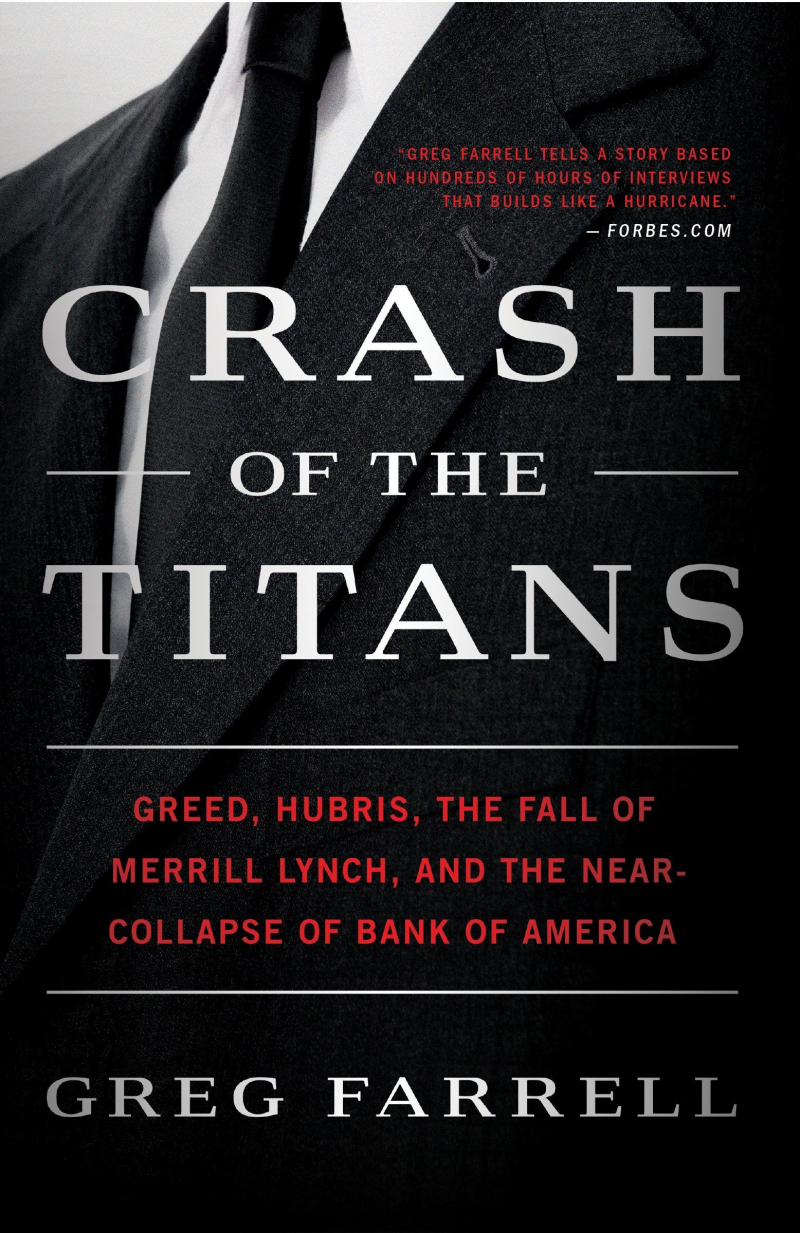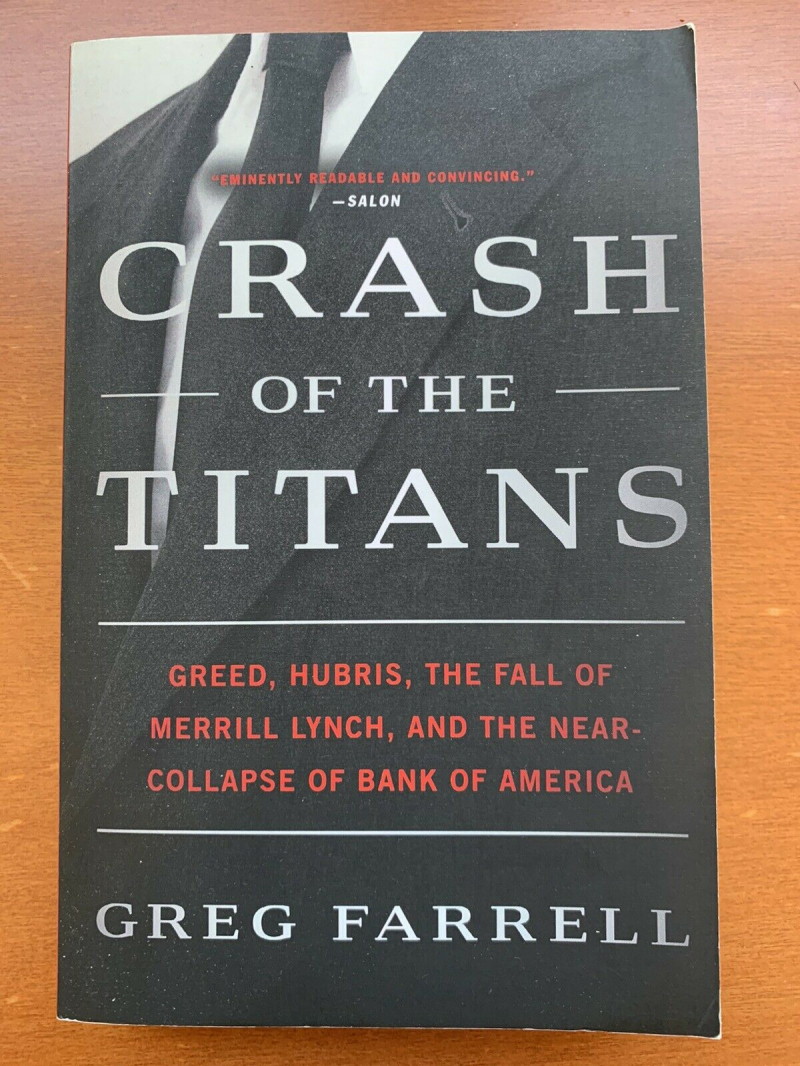Crash of the Titans
Greg Farrell is a Financial Times correspondent. In January 2009, he said that Merrill Lynch had paid out its 2008 bonuses a month ahead of schedule, in December, despite Merrill losing $28 billion for the year and Bank of America requiring an additional $20 billion in taxpayer cash to complete its takeover of the firm. The story prompted New York Attorney General Andrew Cuomo to launch an investigation. Greg has previously received the American Business Press's Jesse Neal Award for investigative reporting and the Knight-Bagehot Fellowship for business journalism. He received a BA from Harvard University and an MBA from Columbia University's Graduate School of Business.
With one notable exception, the Wall Street firms have long been part of an inbred, insular culture that most people only vaguely grasp. Merrill Lynch was an exception, a firm that revolutionized the stock market by bringing Wall Street to Main Street, opening offices in far-flung cities and towns long ignored by finance's titans. Perhaps no other industry, whether in financial services or elsewhere, exemplified the American spirit more than the "thundering herd" of financial counselors. Merrill Lynch was not just "bullish on America," but it was also a major reason why so many ordinary Americans became wealthy by investing in the stock market.
Merrill Lynch was a household name. Its abrupt slide, failure, and sale to Bank of America came as a surprise. What caused that to happen? What caused that to happen? And what does this tale of greed, arrogance, and ineptitude teach us about the culture of Wall Street, which persists even after nearly ruining the American economy? A culture in which the CEO of a company that is losing $28 billion fights hard for a $25 million bonus. A culture in which two Merrill Lynch executives have assured incentives of $30 million and $40 million for four months of work, despite the firm's efforts to decrease losses by laying off thousands of people.
Greg Farrell's Crash of the Titans is a Shakespearean story of three imperfect masters of the world, based on unprecedented sources at both Merrill Lynch and Bank of America. E. Stanley O'Neal, whose inspirational rise from the segregated South to the corner office of Merrill Lynch, where he staged a spectacular turnaround, was derailed by his notion that a smooth-talking salesperson could perform one of Wall Street's most challenging positions. Because he had O'Neal's backing, this executive was able to amass a staggering $30 billion position in CDOs on the firm's balance sheet at a time when all other Wall Street firms were desperately attempting to exit the sector. Following O'Neal is John Thain, the MIT-educated technocrat whose rescue of the New York Stock Exchange won him the moniker "Super Thain." He was hired to save Merrill Lynch in late 2007, but his optimism in the markets caused him to misunderstand Merrill's troubles. Finally, we meet Bank of America CEO Ken Lewis, a street fighter raised barely above the poverty line in rural Georgia, whose "my way or the highway" management style suffers fools more easily than potential rivals, and who made a $50 billion commitment over a September weekend to buy a business he barely understood, putting his own institution in jeopardy.
The merger itself turns out to be a weird mix of cultures that blend like oil and water, with sophisticated Wall Street bankers, suddenly reporting to a cast of Beverly Hillbillies types. BofA's inbred culture, which saw New York banks as its adversaries, was centered on loyalty and a good-ol'-boy network in which competence took a back seat to unquestioning devotion.
Crash of the Titans is a financial thriller that immerses you in the historic events of the financial crisis as people in charge of billions of dollars of other people's money gamble foolishly to increase their power and income or save their own skins. Its richness of previously unknown information and focus on two corporate America titans make it the book that brings the Wall Street calamity together.
Author: Greg Farrell
Link to buy: https://www.amazon.com/gp/product/0307717879
Ratings: 4.6 out of 5 stars (from 195 reviews)
Best Sellers Rank: #187,796 in Books
#128 in Macroeconomics (Books)
#188 in Banks & Banking (Books)
#449 in Economic Conditions (Books)












